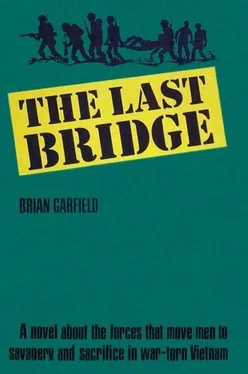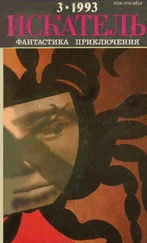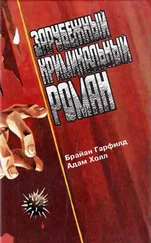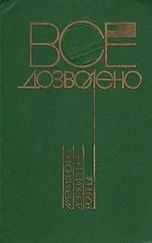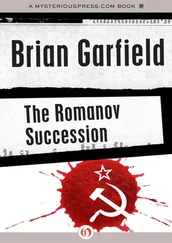“My compliments to the transportation officer. You are very prompt. We shall not need your services.”
The driver saluted and trotted away down the row. Colonel Trung hesitated on the steps. Tyreen turned and saw a brash light in Trung’s eyes; Trung was smiling. He said in English, “I’m afraid my cowardice fails me,” and wheeled, shouting in Vietnamese:
“Sergeant! Sergeant!”
Tyreen’s hand whipped out. Nguyen Khang stood half turned, startled and uncertain. Tyreen took the pistol out of Khang’s loose grip, reversed it, and deliberately shot Colonel Trung point-blank in the face.
The sound of the shot was lost in the tremendous shock-wave and blasting noise of the exploding gasoline depot on the mountain.
The blast almost knocked Tyreen down. Colonel Trung fell off the porch at Tyreen’s feet. Before the man struck the pavement, Tyreen shoved Nguyen Khang toward the car and sprinted around the hood toward the driver’s seat. Saville tossed Eddie Kreizler like a loose sack into the back seat and dived in, slamming the door. Echoes of the gasoline explosion pounded around the parade ground. Voices began to shout within the building and across the compound. Khang slewed into the right-hand seat, and Tyreen gunned the idling engine; with a squeal of tires the staff car careened around in a wild turn. The guard sergeant appeared on the porch, baffled. “Get your heads down,” Tyreen said. In the side of his vision he saw the enormous pyre of the burning storage tanks on the mountain. A flood of liquid flame ran down the slope. Somewhere on the garrison, sirens and bells started up. Tyreen took the staff car around the end of the building on two wheels and roared toward the wooden barrier at the main gate. He crashed the barrier at one hundred kilometers an hour and almost spun out of control; he leveled the car into a city boulevard and roared up the hill.
Chapter Thirty-four
1225 Hours
Corporal Luther Smith crawled to his feet and touched his head. He had cut his temple. The explosion had thrown him halfway across the tower landing. Shards of glass littered the wooden platform but, strangely, the stained rear window by Smith’s post was unscratched. A shattered porcelain figurine lay scattered across the platform. J. D. Hooker was resetting his machine gun in the tower opening. Smith heard the great roaring of flames; from his post he could not see the fire, but the platform was awash with red brilliance, and he felt the heat of it against his cheeks. Hooker was talking, complimenting himself on the expert job of demolition. Smith heard a shout, and when he saw Hooker’s swift glance, touching him and moving on, he knew it had been his own voice. His white hand would not relax its grip on the submachine gun. For a moment he fought a grim, quiet contest with his hand, but it was useless — his hand would not obey. And so when Hooker said a second time, “Open that damned window, kid,” he held the gun up in both hands and smashed the butt through the window.
Flame glanced off glass shreds, tumbling and dancing through a three-story drop to the overgrown garden beneath. And Smith saw two men down there in khaki with brown-black rifles, staring up at him from under the brims of their helmets: two men in the crimson garden with one side of their bodies made bloody by the rage of the great blaze.
Smith stared back at them. No one made a hostile move; everything was frozen. He started and moved like a slow machine, raking blades and bits of glass from the edges of the casement with the butt of the gun. He backed away from the window, and just before he lost sight of them, he saw one of the soldiers raise his rifle and aim.
Smith spoke incoherently across the high platform. He did not follow what his lips said. Hooker’s back was to him; Hooker did not turn. The upcoming bullet smashed a harmless course through the empty window, cut a splinter from the ornate ceiling, and left a hole through which Smith saw a spot of red light. Smoke crept into the place, thin but lung-tickling. Hooker was hunched over the machine gun, training it on the road.
Smith shrank back. The eye in the ceiling, put there by the bullet, stared at him. A voice came up from the garden, demanding surrender. Hooker’s gun began to bang, driving soldiers back down the road.
A long brown rat came out of a corner and blinked at Smith and scuttled back into the shadows. A small sound came out of Smith’s throat.
“Shut up,” Hooker said, in a mild abstracted tone. He fired a burst into the road.
The rat’s red eyes glowed. Smith turned his gun on the rat. The concentrated fire smashed the rat to pulp against the corner.
“You Goddamn stupid idiot! What the hell you shooting at?”
Smith’s fingers loosened. “I guess I spooked.” His voice was even and controlled. He set the gun down, leaning the muzzle against the wall. The dead rat was splashed over a square yard of wood. Smith wiped his face with his handkerchief. He watched the fur and flesh of the mangled rat until a gunshot drove a path up through the window and put a second eye in the ceiling. Smith picked up the gun and went back to the window, standing beside it and moving his face cautiously until he could see down into the garden.
Now there were four of them, standing foolishly in a group talking among themselves. “Why don’t they take cover?”
Hooker said, “They would, if you took a shot at them.”
“Come over here a minute. Let’s finish them off.”
“Why not?”
Hooker came over, taking his submachine gun down off his back. He put his back to the wall immediately across from the window. For a moment Smith heard his own breathing above the noise of the flames. Dry, hot smoke scraped his face. Hooker said, “A Goddamn shooting gallery.”
“I wonder why they don’t take cover?”
Smith put the gun to his shoulder, cheek to stock — no, the recoil would bruise his cheek; he lifted his head. Barrel up, now, and allow for shooting downhill. The targets were large and motionless, talking. All his muscles were relaxed; he felt good. “Now, Hooker?”
“Now.”
The battering of the two guns sounded out of tune. The barrel became hot against his fingers, and he moved his grip to the forestock and fired a second burst. The four soldiers fell against each other like a collapsing tent. One of them jerked in spasmic dance. They fell in a single inseparable mass. Smith was thinking about the splattered rat.
His gun ran out of ammunition. He took it down and put his last loaded magazine into it. Down in the garden, the arms and legs moved now and then. A helmet on a bush showed a dark moist spot exactly in the center.
Smith said, “How could anybody be so Goddamn stupid?”
Hooker went back across the platform to his machine gun. A big fire truck was coming up the road, and Hooker fired a belt of ammunition into the tires. The truck scraped to a stop, blocking the road.
“Okay,” Hooker said. “Time to get out of here.” He was laughing.
They ran down the treacherous stairs, leaving the machine gun behind. Smith almost lost his balance. Concussion from the exploding gasoline storage tanks had knocked down part of the lower wall and the narrow stair; they had to jump the last eight feet to the floor.
They went back through the cobwebs to the rear of the pagoda and slipped out into the garden. Hooker said, “Wait a minute. Somebody coming.”
“I don’t hear—”
Hooker slapped his mouth gently. Smith closed it; his lips stung. Hooker turned his gun toward the corner. A man’s shape broke into view, running. Hooker fired a short burst. The soldier staggered, dropped his rifle, and stumbled back around the corner.
“Crap,” said Hooker. “Come on.”
Читать дальше
